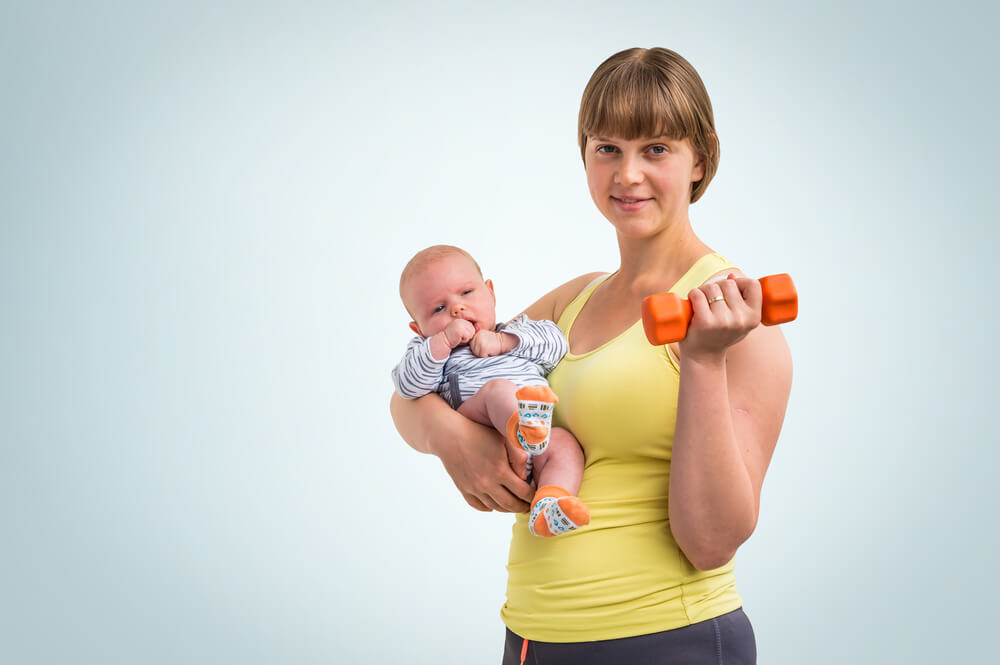If you’re a new or an expecting mother, you’ve probably spent some time searching all sorts of baby-related topics, such as looking for “pediatrics near me” or how often you should change your newborn’s diaper. These searches are relatively normal, and we understand that the unknown expectations after childbirth can be almost as daunting as the birthing process itself. To make it a bit easier for you, we’ve cultivated a list of the top five things you should remember after your baby is born. While this isn’t a definitive guide, it will help you find your footing when you start out exploring the world of motherhood.
1) Each Baby Has a Different Routine
You’ve likely heard horror stories about how newborn parents feel like they never get enough sleep, they’re constantly on edge and they feel like pulling their hair out. For some newborns, this is true. However, there’s a trick to creating routines with your newborn that will help you feel better. Additionally, if you’re noticing your child isn’t forming regular habits or is struggling to sleep or eat, you might research healthy kids pediatrics doctors. These can be early signs of easily addressable medical issues, such as infantile reflux or food allergies.
There are a few key ways to help your baby develop routines, though. For instance, in utero, you may have noticed your baby was most active early in the morning, late at night, or shortly after you ate. This activity is often the earliest stage of habit-forming for your new baby. Maintaining consistency once your baby comes home is essential, both for your sanity and their development. It allows them to create routines, reduces stress-crying, and helps new parents adjust to their baby’s needs.
You might find that your new child has different cries based on their needs. For instance, a high-pitched cry may indicate hunger whereas a cry that sounds more like a wail could indicate discomfort due to needing a diaper change. Whimpers may show your child is tired and struggling to fall asleep. Remember that infants often cry to communicate, and looking for these different cries will help you identify and provide for their needs while establishing a routine.
2) Take Care of Yourself
New parents often forget that one of the most important things they can do for their children is to take care of themselves. As adults, we have complex needs and desires that also deserve acknowledgment and respect. Many family’s first pediatrics offices advise parents to schedule some time for themselves regularly. Scheduling time may mean asking a co-parent to take over “baby duty” for a short period so you can relax, nap, or generally recharge. Alternatively, it may mean asking family or friends to help with child care while both parents go shopping or out for a meal.
Ultimately, one of the things that are easiest to overlook when you bring a new baby into the home is that self-care is important as well. Making time to take care of your personal needs is a key factor in ensuring you take proper care of your newborn.

3) Take Time to Bond With Baby
New mothers may have heard that by holding babies too much, for instance, they “spoil” them, making them expect too much from mothers and allowing them to think that any time they cry, they’ll get what they want. This stereotype can be harmful to both new mothers and their children for a variety of reasons. Many healthy kids pediatrics offices advise new parents that there is no such thing as “holding the baby too much.”
Children, from the time they are in utero, expect a sense of security. Initially, they receive this in the womb, which is why they enjoy swaddling as newborns. The feeling of being held is reassuring to newborns. Imagine it this way—your world, originally, was relatively small and cramped. When you’re born, it suddenly becomes almost infinitely larger, which can be overwhelming to a small child. Being held reassures children, provides them comfort, and helps them feel protected.
Additionally, newborn children also develop an almost immediate bond with their mothers. Nourishing this bond, realistically speaking, isn’t always easy for mothers, however. It’s important to keep in mind that new mothers may not feel the love-at-first-sight maternal bond immediately after childbirth. It can take hours, days, or even weeks to begin to feel that bond with your child. This reaction is normal as hormones settle and routines begin to establish. However, doting on your little one and attempting to meet their every need doesn’t make you a “bad mother,” nor does feeling distant or initially unattached.
4) You Need to See a Doctor
When you search for “pediatrics near me,” you often expect new doctors to tell you that you can go back to the routines you held before giving birth. However, the opposite is often true. After you’ve given birth, you’ll likely want to schedule a doctor’s appointment for yourself. Your post-natal checkup allows your doctor to ensure you’re healthy after giving birth.
There are a variety of complications and issues that can occur post-birth that mothers are unaware of or unsure how to handle, up to and including postpartum depression. By consulting a doctor after giving birth, you’ll ensure you’re staying happy and healthy. Additionally, one of the best things you can do, both for you and your baby, is continuing to take your prenatal vitamins. They’ll help you heal and promote lactation, which is important for you and your new bundle of joy.

5) Everyone Struggles, So Don’t Feel Bad If You Have to Ask Questions
If you’re a new parent, adapting to having a child, meeting their needs, and regularly knowing what to do might seem overwhelming. However, even your family’s first pediatrics clinic will let you know, from the beginning, that struggling is okay. Everyone struggles with raising a child, and handling a newborn can be especially scary. New parents often have questions, and it’s fine to ask those questions. If you’re not sure if your child is eating regularly or you have concerns about a behavior you’ve noticed, you must consult your physician or pediatrician. They’re almost always happy to answer your questions, and they would rather provide you with the information you need to raise a happy, healthy child than potentially overlook something important.
Bringing home a newborn is often daunting for new parents. However, it doesn’t have to be. Above all else, new parents should remember to take care of themselves and learn how their children react to situations. Developing habits and routines take time as does learning how to be a parent. New and expecting parents quickly forget just how important it is to ensure they’re happy, healthy, and well, too. Ultimately, though, parents are a newborn’s only source of care and comfort as far as they’re concerned. Therefore, learning how to be a new parent involves taking care of yourself and ensuring you learn how to care for your child. It’s a process and not necessarily a skill every person inherently has.
Contact Doctor Ana at TopLine MD to make an appointment for your newborn.




